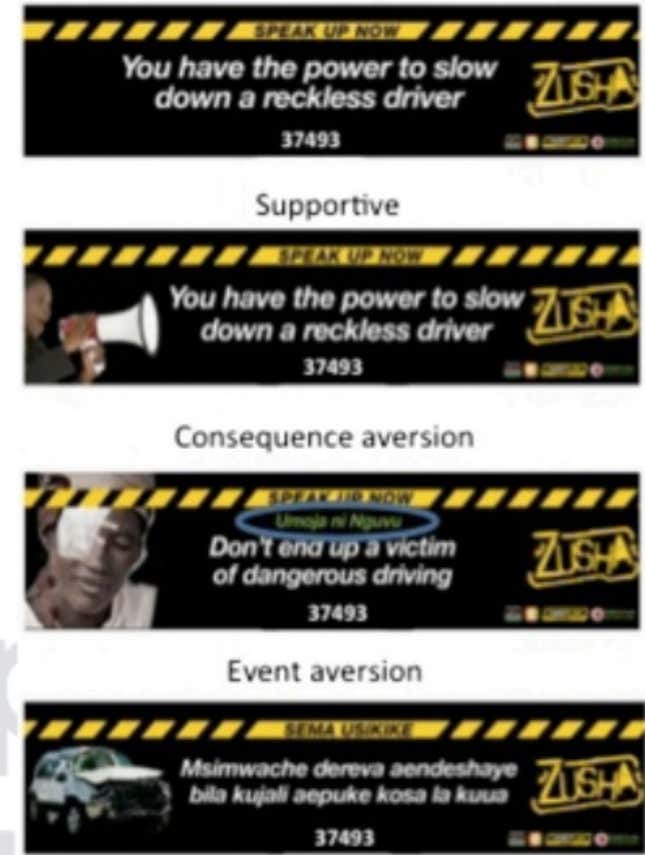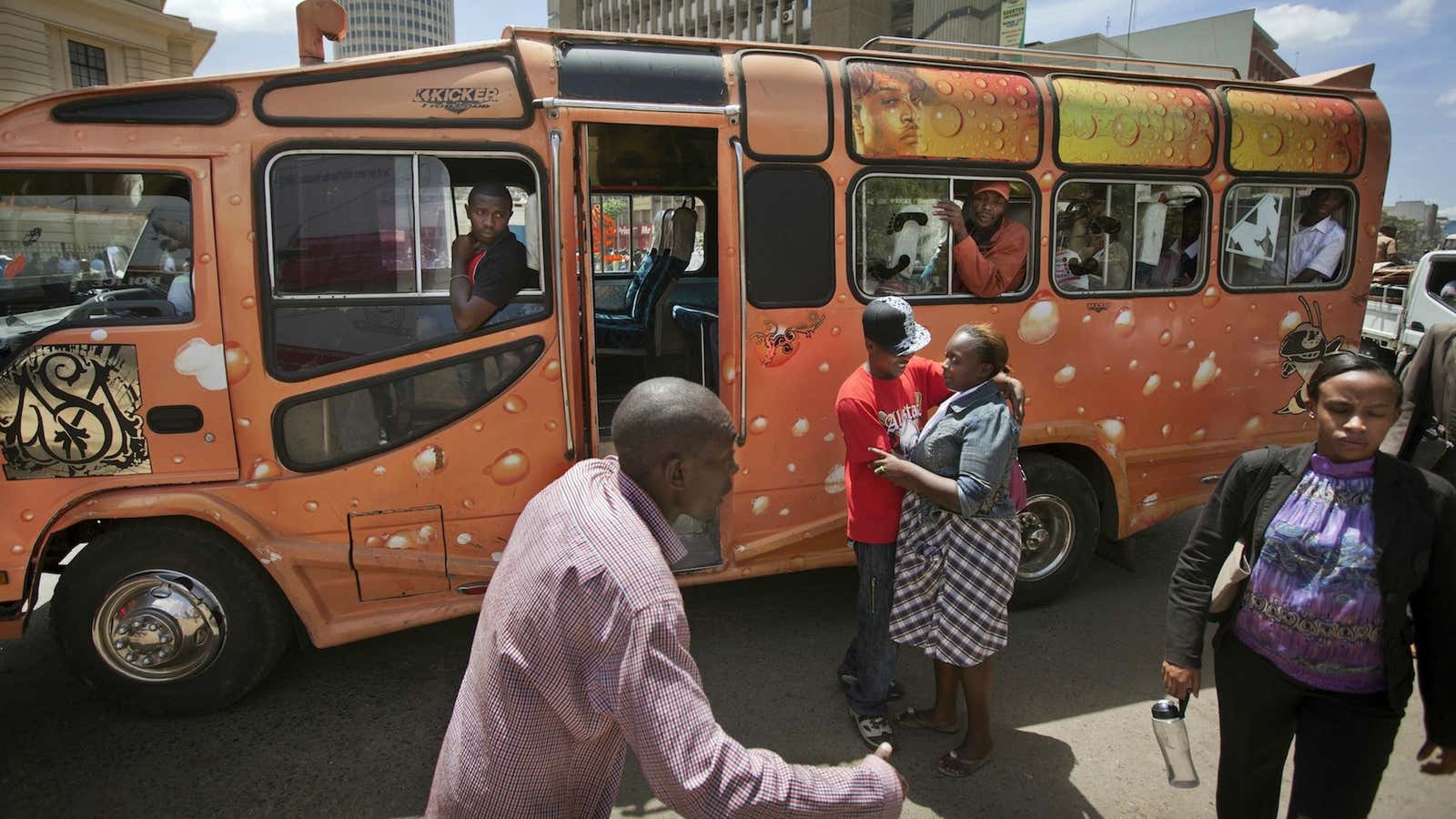Matatus, the minibuses commonly used for transit in Kenya, are famous for their poor safety records. The loud, 14-seater vans, frequently outfitted with strobe lights and souped-up sound systems, are responsible for near-daily fatal accidents. For years, authorities have been trying to force drivers to slow down.
But a new study suggests those safety campaigns may have been targeting the wrong group.
According to researchers from Georgetown University, it’s matatu passengers who may be the most effective advocates for improved safety. The finding is based on the results of a program called Zusha!, Swahili for “protest,” which used stickers to urge riders to speak up when they witnessed reckless driving.
The study, led by James Habyarimana and William Jack, found that the stickers reduced insurance claims of matatus by as much as one third. The researchers believe the stickers can be credited for reducing the number of traffic accidents by 140 a year. Average speeds were also lower, by up to 2 kilometers per hour.

The study tracked 12,000 matatus, which are required by law to buy third-party insurance, for two years. Researchers incentivized drivers, insurance companies, and owners of the vehicles by enrolling them in a weekly lottery for 5,000 Kenyan shillings (about $60), or an average week’s wage for a driver. The campaign’s earlier pilot project was found to reduce claims involving death or injury by 50%; it received a $3 million grant from the United States Agency for International Development.
The stickers include statements like, “Don’t let a reckless driver get away with murder.” (Public anger at reckless matatu drivers is so strong that the drivers often flee the scene of fatal accidents for fear of mob justice.)
The method may be useful beyond Kenya. Traffic accidents are believed to account for as many as 1.3 million deaths around the world, many of them taking place in developing countries.
